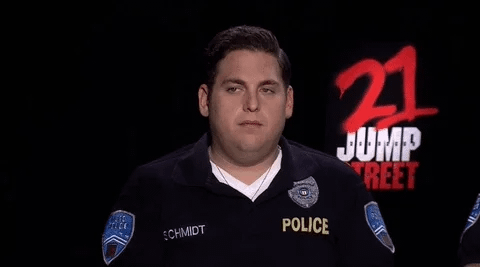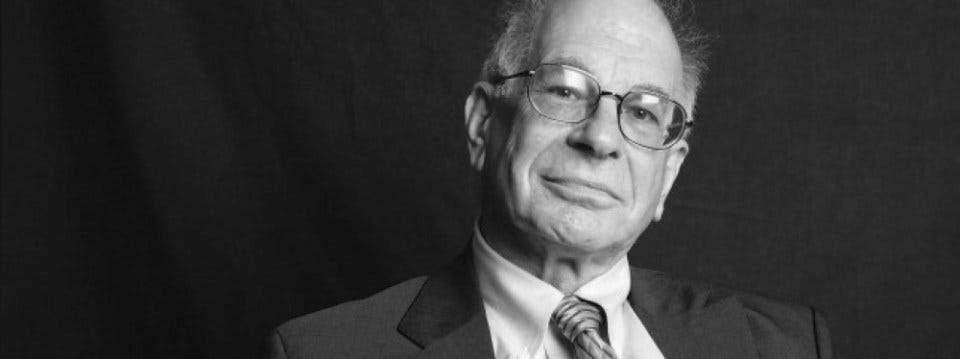#72: Sustainable Businesses, Rest & Leisure, Curiosity
😎 Reflections on life, work & what matters
October 26th, 2019: Greetings from Taipei! This is Battleship Rock, a small hike we did this Wednesday, about 30 minutes outside the city:

👋 We had a flurry of signups this week. 50+ new People. I did my best to decipher names:
Welcome aboard N, Dee, Vic, Anna, Olusegun, Arpit, Dav, Vito, BC, Jody, Lenard, Ayca, Mike, Michael, Ben, Colin, Ravi, Aaron, Alexandra, Steve, Bessella, Samuel, Prisca, Marcus, Josh, "somechic", Wahib, Juanita, David, Nin, Harris, Ayuba, Mantel, Omer, Michael, Chris, Laurene, Hassan & Tony
👊 Want to join the 35 people who support this newsletter through micro-donations? find ways to support my work here
🙏 Forward this to a friend who might get a kick out of it via e-mail or share on twitter#1 Sustainable Businesses 🔁
As Adam Neumann is cashing out of WeWork with $150M+ in consulting fees while his company is burning to the ground, I was encouraged by story of a publishing platform, Ghost, and it's founder’s approach to the business:
Ghost is a not-for-profit organization: there are no shareholders, the entity is entirely independent, it can never be bought or sold. If at any point I want to step down, I can hand over my trusteeship to someone else but I can’t “cash out”, as it were.
and the founder, John O’Nolan’s, personal motivations
Ghost is at the intersection of all of the things that I love. We’ve managed to create a globally-distributed company which gives us the freedom to live lives we enjoy, the ability to work on a product that feels meaningful, in a market feels like it needs us and to me that’s enough.
So my long term goal is for this to be a company and a product which is around for fifty, a hundred years. I’ve deliberately structured it at every juncture in a way to try and prevent myself from becoming enormously wealthy from it because I feel like the more my interests align with the customer’s interests, the more likely the business is to serve the interests of its users and not just focus on whatever is necessary to raise the next largest round or get the biggest acquisition number.
You can read the whole interview of John here, but what sticks out over and over again is that he is optimizing for trust, sustainability, and integrity for his employees, customers and the business. Oh - and profit!
It has become easier than ever to start and run a business like John’s and at the same time those businesses don’t seem to be emerging. It seems that Peter Thiel’s framing in Zero to One is much more powerful in capturing the attention of founders:
“A great company is a conspiracy to change the world"
His thesis in the book and now gospel around Silicon Valley was that great companies need to “escape competition” and aim to build a monopoly where they can dominate the market. The implication being they should do anything grow, grow, grow and reach escape velocity.
Early internet successes such as facebook and google shaped this kind of thinking, but the reality seems to be that this total market dominance is unrealistic in many markets and leads to companies like Uber that lose hundreds of millions of dollars every year and companies like Blue Apron:
The meal-kit company Blue Apron revealed before its public offering that the company was spending about $460 to recruit each new member, despite making less than $400 per customer. From afar, the company looked like a powerhouse. But from a unit-economics standpoint—that is, by looking at the difference between customer value and customer cost—Blue Apron wasn’t a “company” so much as a dual-subsidy stream: first, sponsoring cooks by refusing to raise prices on ingredients to a break-even level; and second, by enriching podcast producers. Little surprise, then, that since Blue Apron went public, the firm’s valuation has crashed by more than 95 percent
What would happen if Blue Apron was founded with similar goals as Ghost? We will never know. But I think people are starting to wake up and realize that aiming for Zero to One results in many unsustainable businesses or even worse, great businesses that start taking massive funding (ahem, Medium) that force them away from a business model that resonated with customers.
Building a great business is still about building trust with customers and employees. I hope we start to see more businesses like Ghost.
✅ Ghost is officially Boundless approved.
#2 PODCAST: Alex Pang On “Rest” 🎙

🎧 Listen here Web | Apple | Overcast | Google | Castro | AnchorI had an amazing interview with Alex last week where we talked about his book Rest (which I’ve also share my book notes of here)
All of his books were the result of a shift in attention to the world during a sabbatical he took in England. I asked if there was any key moment for him where he realized he had “shifted”:
I had been reading Virginia Woolf’s book A Room Of One’s Own that makes the argument that for in order for women to be creative, but really for anyone to be creative, they needed a certain kind of space and independence that had long been denied to women…That got me thinking about all these issues and their interconnection.
The conversation was fascinating and he’s also writing a book due out in 2020 about the 4-day workweek and he shares some pretty exciting results of attempts in Korea of all places!
🎧 Listen here Web |Apple | Overcast | Google | Castro | Anchor#3 Money Shift 💸
People’s biggest fears around leaving their jobs often center around making less money. This rarely turns out to be the biggest challenge. Instead the challenge is coming face to face with your money emotions.
This essay from Amy Chan who left her job to launch a company talks about the the shame of lowering her spending:
But I was sick of pretending. I decided it was time to stop hiding behind my shame. I told my friend the real reason I wasn’t going to her dinner, and she was supportive. I wasn’t being cheap, I was choosing to be fiscally responsible, because my priorities were now focused on building a business.
The fear of rejection and looking stupid was all made up in my head. If anything, people respected me for the sacrifices I was making
When I was back in the states this summer, my brain was filled with fear of not being able to stay friends with people if I couldn’t afford or didn’t want to have fancy dinners or trips. I realize that much of this is in my head, but it made me realize that people’s money fears are often not what they expect.
We fear making less money, but the real fear should be having to grapple with the deeper questions.
What makes us want to earn money and buy stuff in the first place?

A majority of the people who lower their income and find a path worth pursuing make a similar mental shift to Amy:
When I was working in corporate, I used to think I was wealthy, but I was broke. I didn’t have freedom over my time, I wasn’t building something of my own that I found meaningful, and I was attached to stuff. I’ve learned through this process that I don’t need much. My things don’t define me. The brand of my handbag doesn’t make me more or less credible. I may have less money, but I feel the wealthiest I’ve ever been.
#4 Curiosity = When You “Kind Of” Know 💡
A good read on curiosity. Curiosity seems to be driven by “kind of” knowing something :
As expected, subjects were least curious about answers they thought they knew. But they were also uninterested in questions about which they hadn’t a clue. Instead, curiosity peaked when subjects had a good guess about the answer but weren’t quite sure.
#5 Kahneman: Intuition & Meetings 📄

Daniel Kahneman is a fascinating nerd and always interesting - his podcast with Shane Parrish was no exception. I love their discussion of clear thinking & intuition:
What gets in the way of clear thinking is that we have intuitive views of almost everything. So as soon as you present a problem to me, I have some ready made answer. What gets in the way of clear thinking are those ready made answers, and we can’t help but have them.
He also had a couple great ideas to improve meetings.
One of them involves people coming to the meeting with a decision already made and written down. This forces people to do the “pre-reading” before a meeting and helps overcome some of the free-rider and groupthink problems of people following the herd without thinking through the problem.
However, he found that many of the tactics he helped companies implement were abandoned:
“Anything that threatens the leader will not be adopted”
He found over and over again that anything that forced leaders into a vulnerable position or to admit that they weren’t sure were abandoned or resisted.
Fascinating interview. Highly recommended
#6 Following up on last week:

That’s all for this week. Have a good weekend!

Want to Support Boundless? All of the options here
🙋♂️ If you want to learn more about who I am or what I’m working on, find me here or check out some of my longform writing.
Have a good weekend 😃If you aren’t subscribed to the e-mail, join us here:




